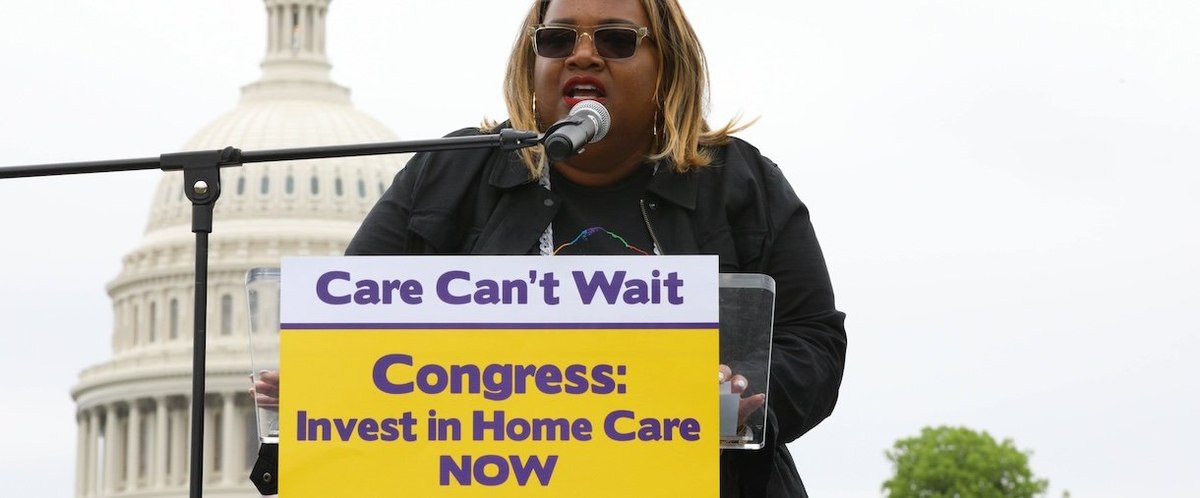A new YouGov survey tested whether Americans view government “welfare” differently than government “assistance" when different words were applied to the same program, their personal experience with such programs, and how well they believe these programs are serving several dozen groups of people in the U.S. Most Americans have been the recipient of government welfare at some point in their lives; few think that these programs are being administered efficiently or without fraud.
Half of the respondents in the YouGov survey were shown each question with the word “welfare” and the other half were shown the same questions with the word “assistance.” For example, half saw the question, "Do you think that most people receiving government welfare in the U.S. are…?" and the other half saw, "Do you think that most people receiving government assistance in the U.S. are…?" The experiment tested if responses varied based on the word used in the question, and there was no significant difference. In reporting the results, we combined both groups of respondents and will be using the word “welfare” rather than "assistance" for all questions.
Most Americans have received at least one type of government welfare in their lifetime. 30% have received food support and 29% have received government health care. Fewer say they’ve gotten welfare in the form of education (14%), employment services (13%), housing support (9%), cash (9%), or mental health care (9%). 36% of Americans say they’ve received none of the welfare options asked about in the question.
Few Americans think the government is distributing the right amount of welfare. For each of the 25 recipient groups asked about, fewer than one-third of Americans think it is receiving the right amount of government welfare. In other words, majorities think each group is receiving too much or too little. And they are much more likely to think groups are receiving too little — for all but a few exceptions.
About two-thirds (67%) of Americans say the government does not provide enough welfare to veterans. Majorities say the government does not provide enough welfare to elderly people (63%), people who are homeless (60%), people with mental health problems (59%), people with disabilities (57%), and people who are poor (56%).
45% of Americans think the government provides too much welfare to immigrants; 38% say the same about refugees. More Americans say the government provides too much than too little welfare for those two groups as well as for LGBTQ+ people and for convicted felons.
Republicans are more likely than Democrats to think almost all of the 25 groups of people asked about are getting too much government welfare rather than too little. Among the biggest differences in how Democrats and Republicans perceive the amounts of government welfare being currently provided: 73% of Republicans and 19% of Democrats think the government provides too much welfare to immigrants; 64% of Republicans and 14% of Democrats think the same about the welfare provided to refugees. Most Republicans (55%) say the government provides too much welfare to LGBTQ+ people while 11% of Democrats agree.
Beliefs that Americans receiving welfare benefits are employed, are getting benefits long-term, and are fraudulently claiming benefits are widespread.
Nearly half (47%) of Americans believe that most people receiving government welfare are unemployed. Republicans (59%) are more likely than Democrats (40%) and Independents (40%) to say this. 29% of Americans think that most people receiving government welfare are employed and 25% are not sure.
52% of Americans say they think most people receiving government welfare are on it long-term — about twice as many as think most people are on it short-term (24%). The majority (70%) of Republicans, along with 49% of Independents and 39% of Democrats, believe most people receiving government welfare are doing so long-term.
36% of Americans think at least half of people receiving government welfare are fraudulently claiming benefits, with 10% who think most recipients are doing this and 3% who think almost all are. 41% think some recipients are doing this, and 12% think almost none are.
Republicans (52%) are more likely than Independents (35%) and Democrats (21%) to say at least half of welfare recipients are fraudulently claiming benefits.
6% of Americans — including 3% of Democrats, 5% of Independents, and 10% of Republicans — believe all of the following: that most people receiving government welfare are employed, that most are on it long-term, and that at least about half are fraudulently claiming benefits.
62% of Americans say they think government welfare programs are managed not very efficiently (35%) or not efficiently at all (26%). 28% think they are managed efficiently, including 5% who think they are managed very efficiently.
Republicans (73%) are more likely than Independents (63%) and Democrats (50%) to say welfare programs are not managed efficiently.
Slightly more Americans attribute a person's financial success to their personal qualities than to external conditions. 9% of Americans believe that when people succeed financially, it’s almost entirely due to their personal qualities rather than external conditions. 17% say it’s more by personal qualities; 13% say it’s more by external conditions and 5% think it’s almost entirely the result of external conditions. The largest share, at 46%, say it’s both equally.
Republicans (44%) are more likely than Independents (25%) and Democrats (11%) to believe that people’s financial success is mostly or entirely due to their personal qualities.
— Taylor Orth and Carl Bialik contributed to this article
Related:
- How Americans evaluate Social Security, Medicare, and six other entitlement programs
- Americans are more likely to say homelessness is a serious problem than they were in 2022
- Which government agencies do Americans think should get more or less funding?
See the results for this YouGov poll
Methodology: This YouGov poll was conducted online on June 6 - 9, 2024 among 1,105 U.S. adult citizens. Respondents were selected from YouGov’s opt-in panel using sample matching. A random sample (stratified by gender, age, race, education, geographic region, and voter registration) was selected from the 2019 American Community Survey. The sample was weighted according to gender, age, race, education, 2020 election turnout and presidential vote, baseline party identification, and current voter registration status. Demographic weighting targets come from the 2019 American Community Survey. Baseline party identification is the respondent’s most recent answer given prior to November 1, 2022, and is weighted to the estimated distribution at that time (33% Democratic, 31% Republican). The margin of error for the overall sample in each survey is approximately 3.5%.
Image: Getty (Brian Stukes / Stringer)
What do you think about the election, American politics in general, and everything else? Have your say, join the YouGov panel, and get paid to share your thoughts. Sign up here.












